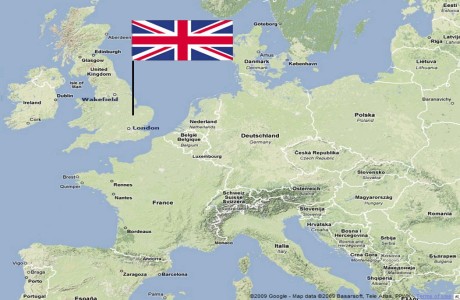
Britain strongly supported Arctic oil drilling, within the right safety regime, energy minister Charles Hendry said on Monday after Cairn Energy last week halted a Greenpeace protest off Greenland.
Governments around the world are cautiously backing deepwater drilling, a year after a BP oil spill at its Macondo well spewed more than 4 million barrels of crude into the Gulf of Mexico. “It’s entirely legitimate that, given the ability to carry out this work safely, this should be part of the work of the industry,” Hendry told Reuters Global Energy and Climate Summit when asked about Cairn’s Greenland activities.
“I would urge any country around the world to look at the Norwegian, British approach in terms of robust regulation.”
Norway has endorsed Arctic exploration, awarding licenses off the north. Britain has allowed probes in the rough, deep waters west of Shetland hoping to slow a decade-long slide in production in shallow seas.
Cairn is leading a charge into offshore Greenland which explorers believe could hold billions of barrels of oil. Exxon Mobil, Husky Energy and others have plans.
The company last week won a court injunction against Greenpeace aimed at preventing the environmental protest group from interfering with its drilling operations off Greenland.
Protesters have tried twice this year to delay Cairn Energy’s drilling by boarding a rig there.
Greenpeace complained that Cairn had no published emergency response against a spill. The company said Greenland authorities had required that its plans were not made public.
Companies in UK waters had to publish such plans, said a spokesman for the Department for Energy and Climate Change.
“There’s random checks, a constant process of monitoring and that’s been tightened further since Macondo,” added Hendry.
Hendry also invoked Britain’s safety regime against concerns over shale gas, new discoveries of which have cut U.S. gas prices but also raised worries over groundwater contamination.
Hendry said Britain was not considering banning shale gas exploration following a drilling suspension in Lancashire, northwest England, where two tremors were measured near a Cuadrilla Resources exploration site in April and May.
“We haven’t felt a ban was necessary. Our view has been that the safety approach which we have in the UK is sufficiently robust and as long as it satisfies those issues it’s a legitimate activity,” Hendry said.
He added that he was certain the Cuadrilla site did not contaminate water supplies, a concern which has led other countries, such as France, to consider a ban.
“I am very satisfied that it can’t (contaminate water supplies). There are several thousand feet separating the water table and where the shale gas is,” he said speaking about a visit to the site.
“We believe that unconventional gas does have a role to play and we’re keen to see that taken forward subject to very stringent safety rules and regulations.”
Cuardilla’s Lancashire site is the only area in Britain where shale gas exploration is being carried out.
Members of Parliament said last month that a shale gas ban was not necessary given insufficient evidence proving it has a negative impact on the environment.


